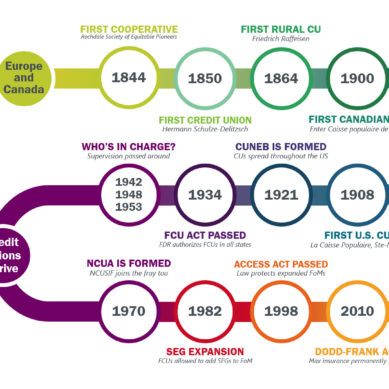“Writers are valuable to businesses.” Well, duh. After all, anything you read, or even anything that’s said aloud that wasn’t an off-the-cuff remark, was probably written by somebody. Of course writing is important!
If we both agree, what’s the point of this article?
Google “the value of writing” and you’ll see hundreds of posts about how writing enriches our lives, how it expresses who we are, how it entertains and enlightens…blah, blah, blah. Granted, most of these articles were put there by writers trying to earn a living, so there’s that. (Full disclosure: I earn my living writing, too.) But I’m not here to wax poetic about how writers make the world a better place. (Even though they do.)
Rather, I’m hoping to convince you to spotlight writing as one of your organization’s critical assets. Because if you consider writing to be an asset, then you’ll value it, protect it, and invest in it, just like any other asset listed on your balance sheet.
If you’re like most people, writing is something you take for granted. Surely any reasonably educated employee can write, after all, so what’s the big deal? The big deal is whether your organization makes it a priority. Is the importance of writing baked into your business goals, your job descriptions, and the day-to-day activities of everyone on your team?
Do you document what you do? What you plan to do? Why you do it, and what you’ve learned along the way?
An asset that keeps on giving
It doesn’t matter if the writing’s being done by a full-time professional writer, or just an employee tasked with writing down procedures they perform every day; the mere act of writing can add so much more than just the end product of a finished document.
Writing things down gets information out of people’s heads and onto paper, turning knowledge into something permanent. The act of creating that long-term record adds to your long-term sustainability. Think of it as part of your contingency planning for people. When an employee walks out your door, does everything they’ve learned and contributed over the years leave with them?
Writers can play the role of the audience or an interested bystander. This provides a completely different point of view, and lets you see the content in a new light. Something that might be clear to a long-time insider might be completely bewildering to a brand-new employee, so consider having the newbie do the writing, while learning from the old hand. When I first started in this business, I was an outsider to the credit union business. In learning the software I had the same perspective a brand-new user would have, which in turn put a spotlight on insider lingo to clarify or eliminate.
As a 30-year veteran writer, from experience I can tell you that translating something into writing requires a thorough understanding of it…which brings up questions…and questions ultimately lead to improvements in whatever it is you’re explaining. For example, whenever I work on updating a form for one of our teams, any confusion I feel about how the form is used and how it should be filled out usually causes adjustments to streamline the procedure, in addition to improvements in the form itself.
Writing creates opportunities for people to grow. And not just from whatever they learn from the writing experience. One of my mantras has always been, the quickest way to be dispensable is to try to be indispensable. Some people try to keep knowledge to themselves, as something secret that increases their value and makes them irreplaceable. But that way of thinking only hurts them in the long run. As anyone who has ever lost a job can tell you, that mindset can lead to a rude awakening.
More importantly, handcuffing yourself to the things you already know closes the door on opportunities to do something even better. I’ve made this a priority throughout my entire career, and I truly believe one secret to my success is how well I’ve documented my own knowledge along the way. Everything’s ready to pass on to someone else, so when something new comes along I can jump in with both feet.
When it comes to writing, which matters most: quality or quantity?
Mark Twain was once quoted as saying, “I apologize for such a long letter – I didn’t have time to write a short one.” Any writer can tell you that dashing off every thought in your head as it appears takes almost no time at all…it’s the editing that gets you.
When it comes to writing, quality does matter. Badly written documents can confuse, obfuscate, and mislead. Writers who can write well should be especially valued. But since there are already thousands of self-help books, classes, and programs focused on improving the quality of the written word, let’s just accept as an axiom that bad writing can even be worse than no writing at all.
The problem is that in business, it’s also possible to get so bogged down on writing quality that the writing quantity suffers. My point here is to be careful not to place too great an emphasis on getting everything just so, at the expense of just getting it written.
That’s why you have to make it a priority that your employees, that your teams, that your leaders write things down. You don’t depend on people remembering things, and in fact assume they won’t (but they’ll be really great at looking things up). You commit to translating what you know, what you care about, who you are, and where you’re going, into a lasting narrative that’s ready for the next generation.
Companies that value writing…
…require every team to document procedures, maintain them regularly, and use them in day-to-day work.
…maintain an internal website, maintain it regularly, and use it in day-to-day work.
…maintain a robust customer-facing website, maintain it regularly, and use it when interacting with customers.
…include writing as a required skill when hiring employees.
…include writing as a requirement in job descriptions and employee annual planning goals.
…create written materials for anything and everything, getting information out of people’s heads and into something lasting for their future.
…make written materials readily available to everyone, even customers and external stakeholders.
Sure, most of you write an annual business plan, but do you include goals about writing in it? You should!
































































